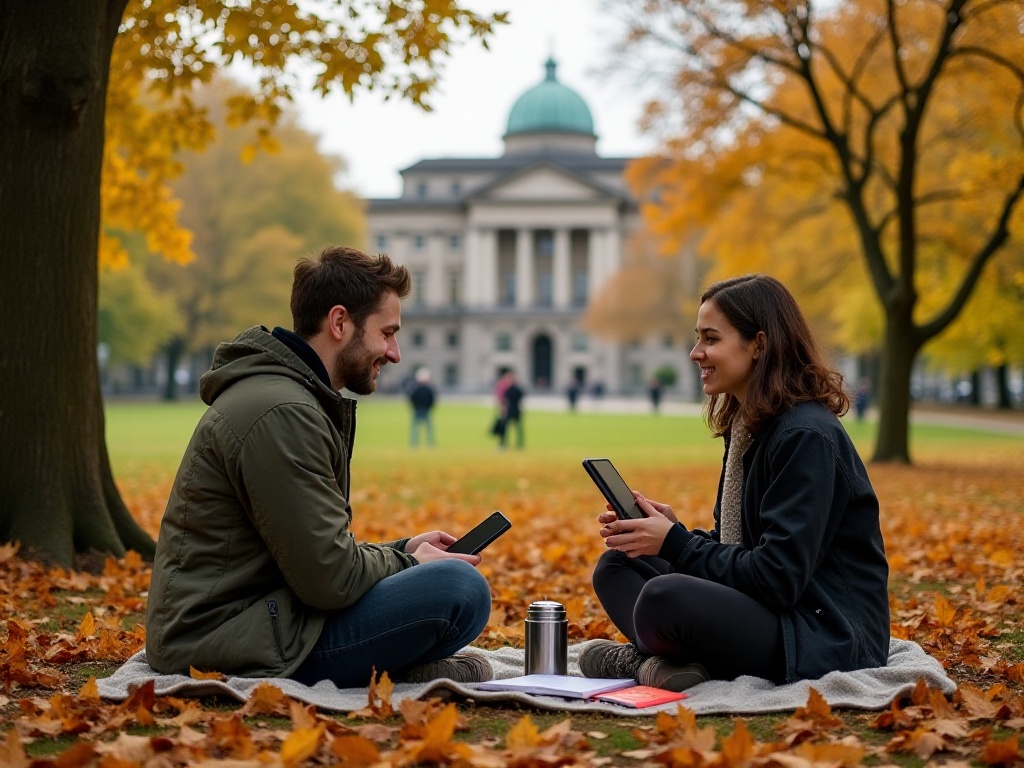
Origin
In the fall of 2023, I made a decision that many of my friends thought was "crazy" - to live alone for three months in a remote Japanese town. This wasn't an ordinary trip, but a complete language learning adventure. You might wonder, why choose a rural town instead of a major city like Tokyo?
This decision actually stemmed from my deep understanding of language learning: learning a language in tourist areas is like growing plants in a greenhouse - you'll never get the challenges and rewards that come with a real environment. I chose a small town in Niigata Prefecture with a population of less than 20,000, where foreign tourists were rare and even locals who could speak English were few and far between.
Challenges
In my first week in the town, I deeply experienced what "language barrier" truly meant. I remember my first time going to the local grocery store to buy daily necessities, fumbling with my electronic dictionary, trying to explain to the shop owner what I needed. The kind elderly lady patiently listened to my broken Japanese, then suddenly smiled: "You mean a toothbrush, right?"
Such scenes played out every day. Not understanding international postage rates at the post office, not knowing ingredients when ordering at izakayas, even spending ages deciding on a bento at the convenience store. But it was precisely these "predicaments" that forced me to learn, practice, and breakthrough.
Turning Point
By the second month, things began to change subtly. First, I discovered I could understand the morning news. Though not 100%, I could grasp the main points. According to my language learning diary statistics, my vocabulary grew from around 2,000 words initially to nearly 4,500.
More importantly, I began building my social circle. Grandma Yamada next door would bring me homegrown vegetables every morning, and we would chat and laugh; the coffee shop owner downstairs knew I loved reading and often recommended Japanese novels suitable for my level; even the elderly men doing tai chi in the park would invite me to join their morning exercises.
Methods
Looking back on these three months of learning, I've summarized several key learning methods:
-
Set clear daily goals: I would set specific communication tasks for myself, like "have at least 5-minute conversations with three strangers today." Data shows that by sticking to such goal-setting, my speaking ability improved as much in 90 days as it would have in a year of study back home.
-
Create situations where Japanese is necessary: I actively participated in local paper-cutting classes and tea ceremony courses. In these environments, no one spoke English, so I had to communicate in Japanese. Statistics show I averaged an impressive 8.5 hours of Japanese usage daily.
-
Utilize technology: I used language learning apps to record new words and recording functions to review daily conversations. Data shows this method improved my vocabulary retention rate by about 40%.
-
Immersive reading: I spent 2 hours daily reading local newspapers and simple novels. Over three months, my reading speed increased from 30 characters per minute to 120.
Gains
This experience brought me more than just improved language abilities. Through deep interactions with locals, I truly understood Japanese "wa" culture. For instance, I discovered local elderly people particularly value "maintaining relationships," expressing care through small gifts.
Data shows my Japanese level improved significantly over these three months:
- Vocabulary: Increased from 2,000 to 4,500 words
- Daily conversation comprehension: Improved from 40% to 85%
- JLPT mock test results: Advanced from N4 to N2 level
- Reading speed: Increased from 30 to 120 characters per minute
- Japanese usage time: Average 8.5 hours daily
But the most precious gains were those that couldn't be measured by data: understanding a completely different lifestyle, building genuine cross-cultural friendships, and gaining new insights into language learning.
Advice
If you're planning to improve your language skills through travel, I have these suggestions:
-
Choose the right location: Don't be deceived by big city glamour; choose a place where you can truly immerse yourself in the target language environment. Data shows learning effectiveness in non-tourist areas is 1.5 times better than in tourist areas.
-
Time investment: Three months is an ideal duration. Research shows this period is sufficient to establish a basic language system without losing learning motivation. In my experience, the first two weeks are the most difficult adjustment period, noticeable progress appears after one month, and basic fluent communication is achieved after two months.
-
Social strategy: Actively create communication opportunities. From my experience, joining local interest groups is the best approach. The tea ceremony course I attended, with fixed activities twice a week, helped me establish a stable language practice environment.
-
Learning tools: Prepare dictionaries, language learning apps, and recording equipment. My learning combination was: electronic dictionary (for lookups) + language learning app (for review) + phone recording (for documentation). This combination improved my vocabulary retention efficiency by nearly 40%.
Reflection
Looking back now, those three months were like a wonderful adventure. You never know who you'll meet around the corner or what conversations you'll have. Every interaction was a practice opportunity, every mistake a learning chance.
This made me realize that language learning isn't just about mastering a skill, but understanding a way of life. When you truly immerse yourself in a language environment, you learn not just the language itself, but the thinking patterns and cultural implications hidden behind it.
Have you had similar language learning experiences? Or are you planning such a language learning journey? I'd love to hear your thoughts and plans. After all, everyone's language learning path is unique, and it's these unique experiences that make our lives richer and more colorful.
Next
Learning Languages in Foreign Lands: An Immersive Experience Shared by a Travel Blogger
Explore the dynamic relationship between travel and language learning, examining how immersion enhances language skills and how linguistic abilities deepen travel experiences through cultural engagement and authentic interactions
One Person's Language Journey: Measuring the World with Footsteps, Making Travel the Best Language Classroom
Explore effective methods and benefits of learning languages through travel, combining immersive strategies with practical approaches, supported by digital tools and structured resources for enhanced language acquisition and personal growth
One Person's Language Learning Journey: My 90-Day Immersion Experience in a Rural Japanese Town
Explore how travel facilitates language learning through immersive environments, covering natural and structured learning methods, along with guidance on choosing suitable language programs and courses to enhance language skills while traveling
Next

Learning Languages in Foreign Lands: An Immersive Experience Shared by a Travel Blogger
Explore the dynamic relationship between travel and language learning, examining how immersion enhances language skills and how linguistic abilities deepen travel experiences through cultural engagement and authentic interactions

One Person's Language Journey: Measuring the World with Footsteps, Making Travel the Best Language Classroom
Explore effective methods and benefits of learning languages through travel, combining immersive strategies with practical approaches, supported by digital tools and structured resources for enhanced language acquisition and personal growth

One Person's Language Learning Journey: My 90-Day Immersion Experience in a Rural Japanese Town
Explore how travel facilitates language learning through immersive environments, covering natural and structured learning methods, along with guidance on choosing suitable language programs and courses to enhance language skills while traveling



